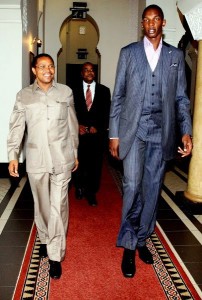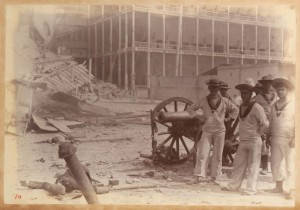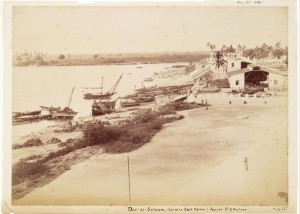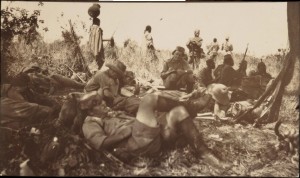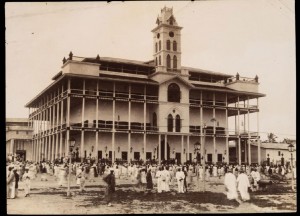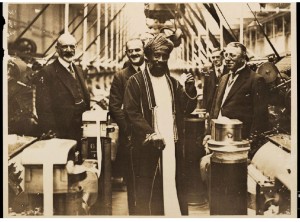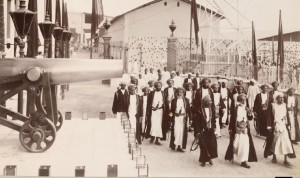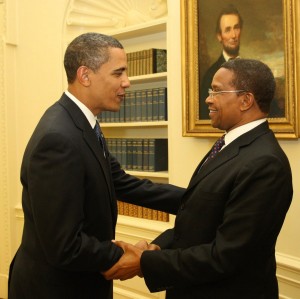Both the Catholic Church and the Muslim hierarchy have been involved in controversy during recent weeks. The Church issued a pastoral letter which resulted in what Prime Minister Pinda described as a ‘hot debate’ because to Muslims it represented interference in the political process. Then the Muslim authorities stepped up their campaign against what they considered to be excessive Christian pressure forcing the government to ban the spread of Sharia law.
The Roman Catholic Church
This Church published an 18-page booklet entitled ‘Mpango wa Kichungaji Kuhamasisha Jamii Kuelekea Uchaguzi’ (A Pastoral Project to Sensitise People Towards the Elections) authored by the Catholic Professionals of Tanzania and the Tanzania Episcopal Conference’s Justice and Peace Commission which has caused great controversy. The aim was said to be to help their believers to be better informed on political issues and on how to question prospective holders of political office before the 2010 general elections. The document said that the country was experiencing ‘serious leadership problems’ and called on all Catholics to participate in the forthcoming elections to choose good leaders. The aim was to sensitise the people… to take action in rectifying bad things and strengthening good ones. The sensitisation project started in January 2009 and has 15 phases.
Veteran CCM MP Kingunge Ngombale-Mwiru speaking in the National Assembly urged the Church to withdraw the document which was ‘divisive’, could spark ‘unnecessary chaos’ and was against the principles of unity. “I was surprised to see the document,” he said, “because, during the era of the Father of the Nation, Mwalimu Nyerere and TANU, all leaders were united…. This time it is the Catholic Church, next probably the Evangelical Lutheran Church will come with its own statement and so will the Anglicans and the Muslims,” he said. The MP warned that the move was a threat to religious tolerance and could influence people to choose national leaders on religious grounds.
A senior state official told Raia Mwema that they were concerned about the letter, circulated to all parishes, which had poked holes in government and CCM policies. A young CCM leader, Nape Nnauye, told a rally in Dar that the Church had called upon Tanzanians not to elect corrupt leaders. “Anyone against the manifesto is playing into the hands of the corrupt” he said. CCM Secretary General Makamba said Ngombale was expressing his personal opinion and did not represent the party. House Speaker Sitta and CCM Party Vice-Chairman Msekwa also said they saw nothing wrong in the pastoral letter as it did not go against the law or constitution – Majira
The Church hit back at the wave of criticism. President of the Tanzania Episcopal Conference (TEC), Archbishop Jude Ruwaichi, said that critics should not comment on the circular which they had not thoroughly read nor understood. Such people were viewing the letter with the background of the forthcoming elections “Our intention is to empower the voters to understand the value of their vote and how they can identify capable leaders.”
Prime Minister Pinda, speaking in parliament, distanced himself from showing whether the government supported the church initiative or not. He said the church should not ignore what the public were debating about its circular. He warned over the possibility of other religious institutions coming up with their own circulars to sensitise their worshipers on civic education. “I have not seen such a circular during the last two elections. Why now?” he asked.
However, he expressed his optimism that the controversy would not culminate in a deterioration of the political atmosphere.
The Muslim Council (BAKWATA) then entered the fray. The churches should not try and install their preferred political leaders by influencing the elections next year, because that would be unconstitutional. It would be wrong for them to establish the qualities of leaders to be elected, as it was not their job to do so said Mwanza Regional Secretary Mohammed Said Balla. He said that since January this year Christian clerics had been holding seminars telling worshippers whom to elect – Mtanzania.
Sharia Courts
Following the government’s decision not to allow Sharia courts in Tanzania, BAKWATA called upon Muslims all over the country to boycott CCM candidates in the forthcoming presidential, parliamentary and local government elections. The Chief Sheikh, Mufti Issa Simba, said it was obvious that the government was succumbing to pressure from Christian clerics. Muslims had been demanding a Sharia court for 20 years but all they got was empty promises. Several sheikhs supported the Mufti and one criticised Muslim MP’s who were ‘tight-lipped on the matter.’ Answering an MP in the National Assembly who asked why CCM had “cheated” the people by promising a Sharia court in its manifesto, Prime Minister Pinda called upon people to be patient. Since the issue was sensitive, government had to be careful. Speaker Samuel Sitta intervened to state that the manifesto had not promised a Sharia court but only said it would ‘look into the possibility’ – Mwananchi.
On July 9 a panel of ten Muslim clerics from several mainland regions gave the PM two weeks to declare when a Sharia court would be established. They warned if this was not done they would launch a country-wide campaign to convince Muslims not to vote for CCM. Mufti Shaaban Issa Simba appointed a special committee to pursue the matter, and called upon Muslims to stay calm.
At a meeting of 1,000 Muslims it was stated that they were more capable than BAKWATA to mobilise the Muslim masses. The meeting donated Shs 1.8 million to start the campaign. Several MPs said a Sharia court would ensure that women got their rights. Mgeni Kadida MP (Special Seats – CUF) said she couldn’t understand why the government was against the Court while it existed in places such as Kenya, Uganda and Zanzibar which were multi-cultural and multi-faith societies. Defending the Court, she said: “Under a Sharia Court a widow would have the right to live in her husband’s house until she completed the four-month mourning period.” With a Sharia Court no one would dare throw her out she said – Majira.
Six Muslim organisations including Bakwata, the Istiqaama Community, the Dar es Salaam Islamic Club, the Ishnasheri Community and the Muslim Professional Organisation TAMPRO decided to hold a whole-night prayer session calling for a Sharia court. A protest march was planned in support of a statement by some 300 imams from various mosques who had met in Kariakoo. Former Minister for Industry and Trade Dr Juma Ngasongwa said it was a mistake for government to delay its decision on the Sharia court when the election was just around the corner. The matter had been discussed for 20 years and this had led to the present conflict with Muslims. The Sharia court had existed under colonial rule but then the government had dissolved it –Majira
Muslim political party introduced at mosque
Representatives of a new political party based in the Middle East, Hizb ut-Tahrir, arrived in Tanzania while the religious debate was continuing. It was introduced at a well-attended international colloquium at a mosque in Dar es Salaam. A representative from Mombassa told reporters that his party did not need to be registered because it “followed the teachings of the Koran.” He said that the party, founded in Al Quds (Palestine) in 1953, aimed at Islamic rule (Khilafah) in Muslim majority countries, while in countries such as Tanzania the aim was to “awaken Muslims through intellectual discourse” – Mtanzania.
Gays appeal to the UN
Gay rights activists in the country have complained to the UN Human Rights Commission, claiming that their rights are being trampled on in Tanzania, contrary to the country’s constitution. They want the Penal Code to be amended. But, according to Mwananchi, they were facing strong admonition from religious bodies which considered gay rights to be against religious teachings and moral values. Auxiliary Catholic Bishop of Dar es Salaam Methodius Kilaini said: “If they were disabled then we would understand, but what they want is unacceptable. God has created two sexes and that is how it will remain.”

